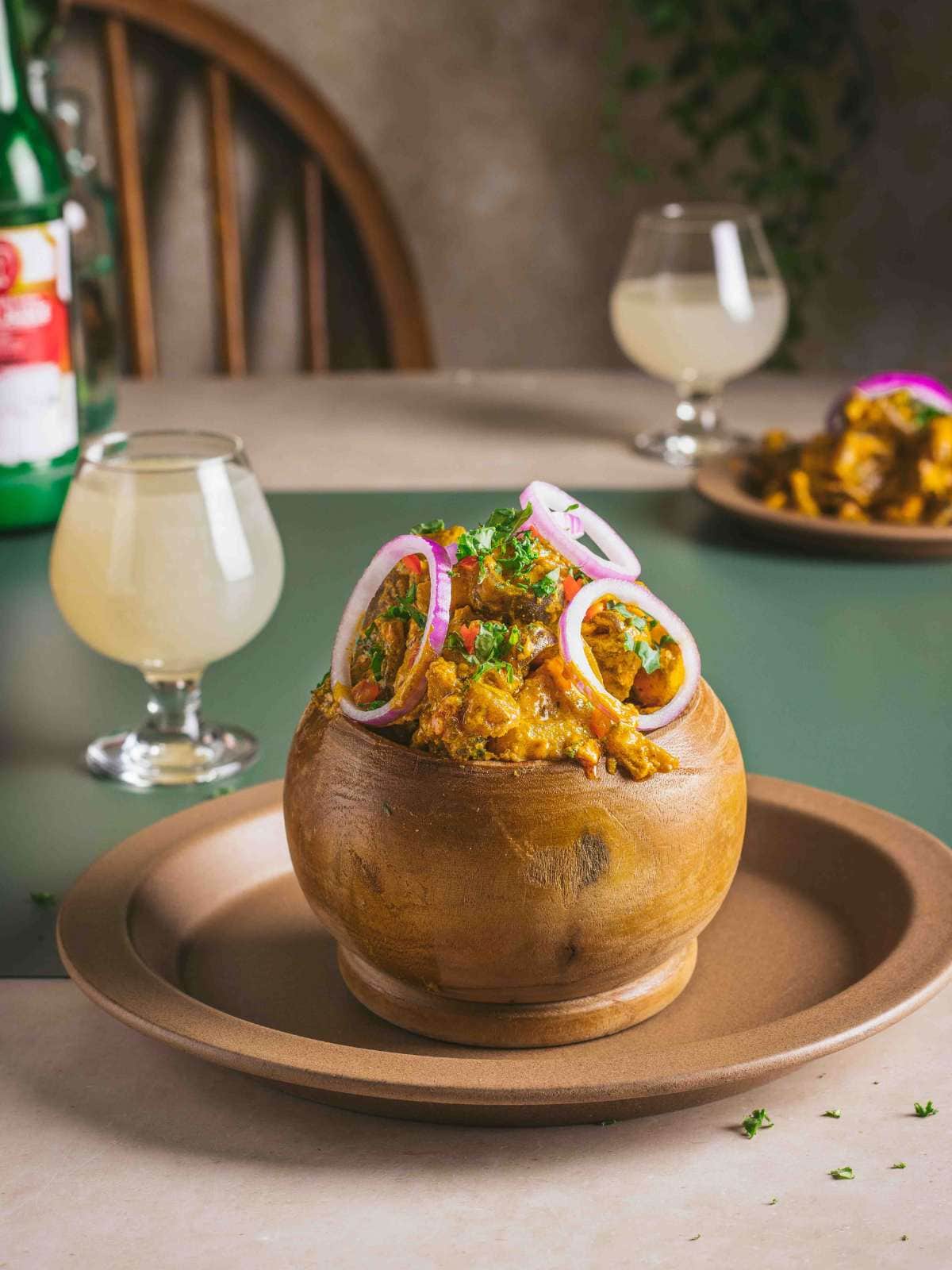Nigerian cuisine offers a rich tapestry of flavors and ingredients that reflect the country’s diverse cultures. From savory stews to spicy rice dishes, Nigerian food is known for its bold tastes and hearty portions. You’ll find a variety of recipes that showcase local ingredients like yams, cassava, plantains, and aromatic spices.
Nigerian recipes are easy to make at home and will introduce you to new and exciting flavor combinations. Whether you’re looking for a quick snack like puff puff or a filling main course like jollof rice, Nigerian food has something for everyone. These dishes are perfect for trying out new cooking techniques and expanding your culinary horizons.
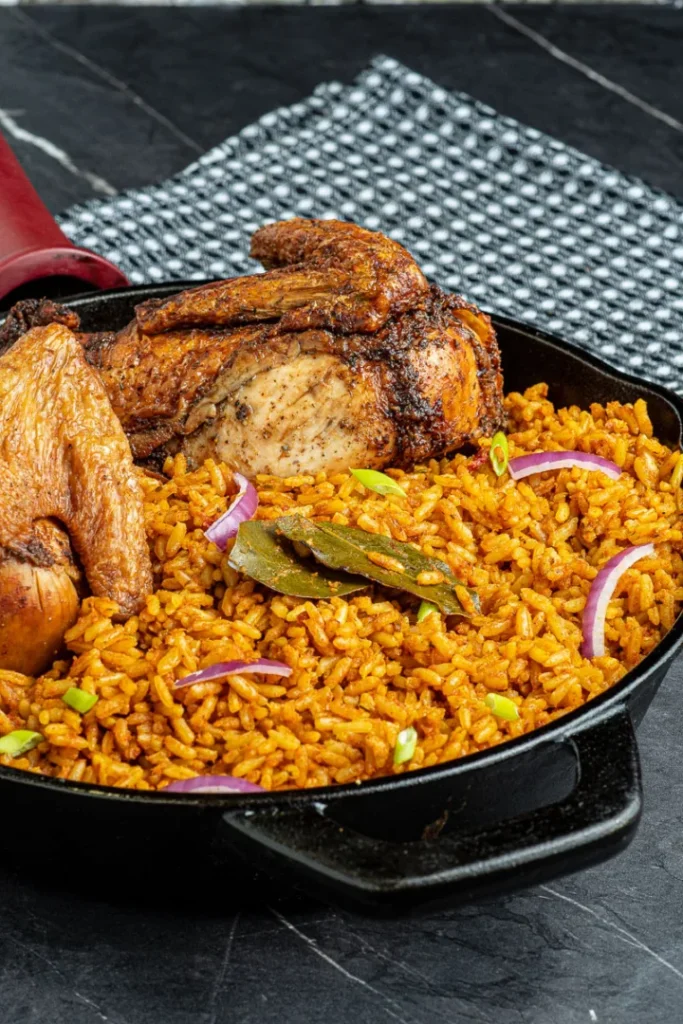
1. Jollof Rice
Jollof rice is a beloved Nigerian dish bursting with flavor. To make it, you’ll need rice, tomatoes, peppers, and spices.
Start by cooking onions and garlic in oil. Add blended tomatoes and peppers, then cook until the sauce thickens.
Mix in your spices like thyme, curry powder, and bay leaves. Pour in parboiled rice and stock, then let it simmer.
The rice will absorb all the flavors as it cooks. Stir occasionally to prevent sticking. When done, the grains should be tender and colorful.
Serve your jollof rice hot with fried plantains or grilled chicken for a tasty meal.
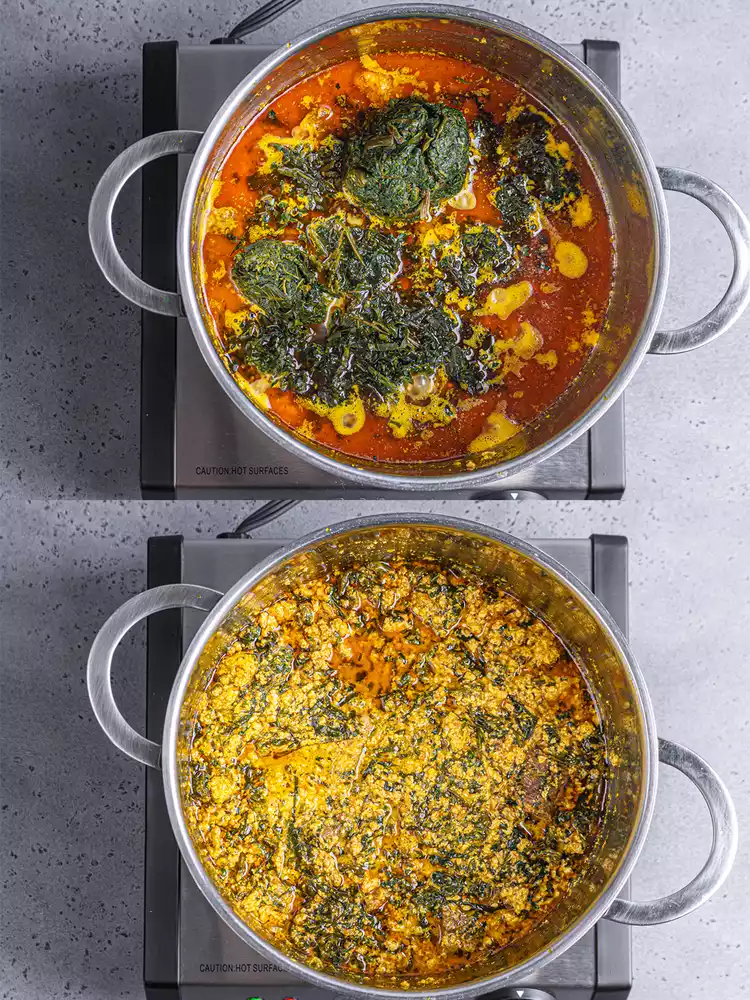
2. Egusi Soup
Egusi soup is a popular Nigerian dish made with ground melon seeds. You’ll love its creamy texture and nutty flavor.
To make egusi soup, blend melon seeds with peppers and onions. Fry this mixture in oil until it forms a paste.
Add meat, fish, or both to your soup for extra protein. Leafy greens like spinach or bitter leaf give it color and nutrition.
Season your egusi soup with salt, stock cubes, and dried crayfish for a rich taste. Serve it hot with fufu, pounded yam, or rice for a filling meal.
Try this tasty soup to experience a true Nigerian flavor. It’s sure to become one of your favorites.
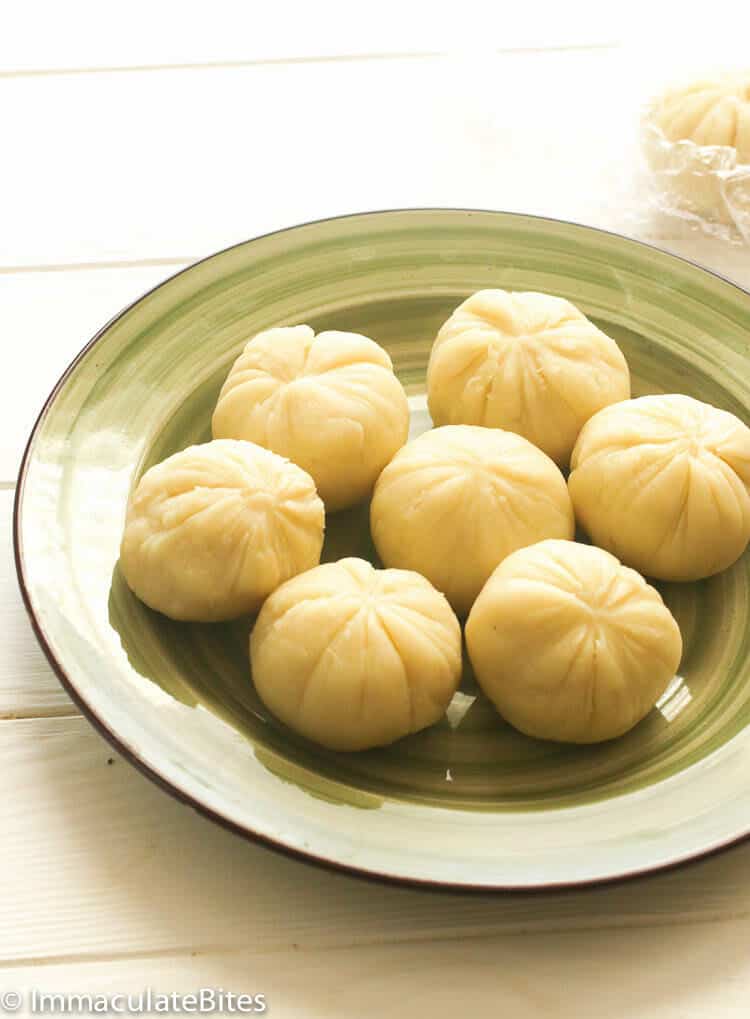
3. Pounded Yam
Pounded yam is a popular Nigerian dish made from boiled yam. You peel and cook yam pieces until they’re soft. Then you mash them into a smooth, stretchy dough.
You can use a mortar and pestle to pound the yam by hand. A food processor or stand mixer also works well for a quicker method.
Pounded yam is often served with various soups. Egusi soup and white soup are common pairings. The smooth texture of pounded yam makes it perfect for scooping up flavorful sauces.
You’ll find pounded yam at many Nigerian meals and celebrations. It’s prized for its soft texture and ability to pair with different flavors.
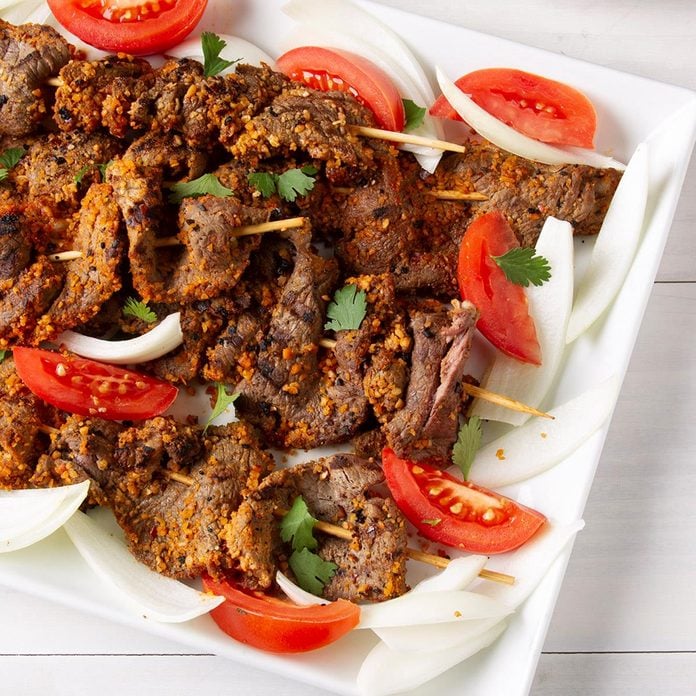
4. Suya
Suya is a popular Nigerian street food you’ll love. It’s made of thinly sliced beef coated in a spicy peanut rub and grilled to perfection.
To make suya at home, thread beef pieces onto skewers. Coat them generously with the spice mix called yaji. This blend usually contains ground peanuts, spices, and peppers.
Grill the skewers at high heat, turning halfway through. The beef should be nicely charred on the outside.
Serve your suya hot off the grill. Pair it with sliced onions, tomatoes, and cucumbers for a fresh contrast. A squeeze of lime juice adds a zesty touch.

5. Akara
Akara is a popular Nigerian breakfast food made from black-eyed peas. To make it, you’ll need to soak and grind the beans into a smooth paste.
Add salt, onions, and pepper to the paste for flavor. Whisk the mixture until it’s light and fluffy.
Heat oil in a pot or deep fryer. Scoop the batter with a spoon and carefully drop it into the hot oil.
Fry the akara balls until they’re golden brown on all sides. Remove them and place on paper towels to drain excess oil.
Serve your akara hot as a tasty breakfast or snack. It pairs well with porridge or a spicy sauce.

6. Moi Moi
Moi Moi is a tasty Nigerian bean pudding. You make it with peeled black-eyed peas, blended smooth with spices and oil.
To prepare, soak and peel the beans. Blend them with onions, peppers, and crayfish. Add salt, stock, and seasoning to taste.
Pour the mixture into small containers or wrap in leaves. Steam for about 35 minutes until firm.
Moi Moi has a soft, creamy texture. You can add boiled eggs or fish for extra flavor. It’s great as a snack or side dish with rice.
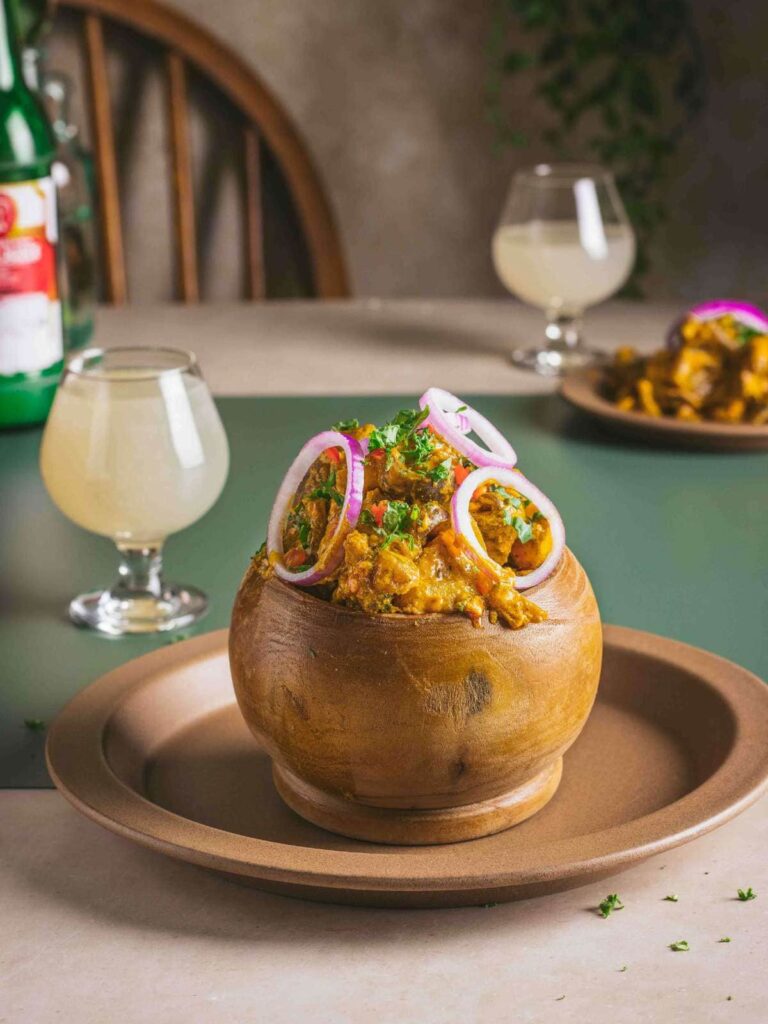
7. Nkwobi
Nkwobi is a spicy Nigerian dish made from cow foot. To prepare it, you’ll need to cut the cow foot into small chunks and boil them with onions and seasonings until tender.
While the meat cooks, you can prepare the spicy sauce. The sauce typically includes ground utazi leaves, palm oil, and ground potash. Some recipes also call for ugba (fermented oil bean seeds).
Once the meat is cooked, you’ll mix it with the spicy sauce. The result is a flavorful, tender dish with a rich red color from the palm oil. Nkwobi is often served as an appetizer or snack.
You can enjoy nkwobi with a cold beverage. It’s a popular dish at Nigerian parties and gatherings. The spicy kick and unique texture make it a favorite among many Nigerian food lovers.
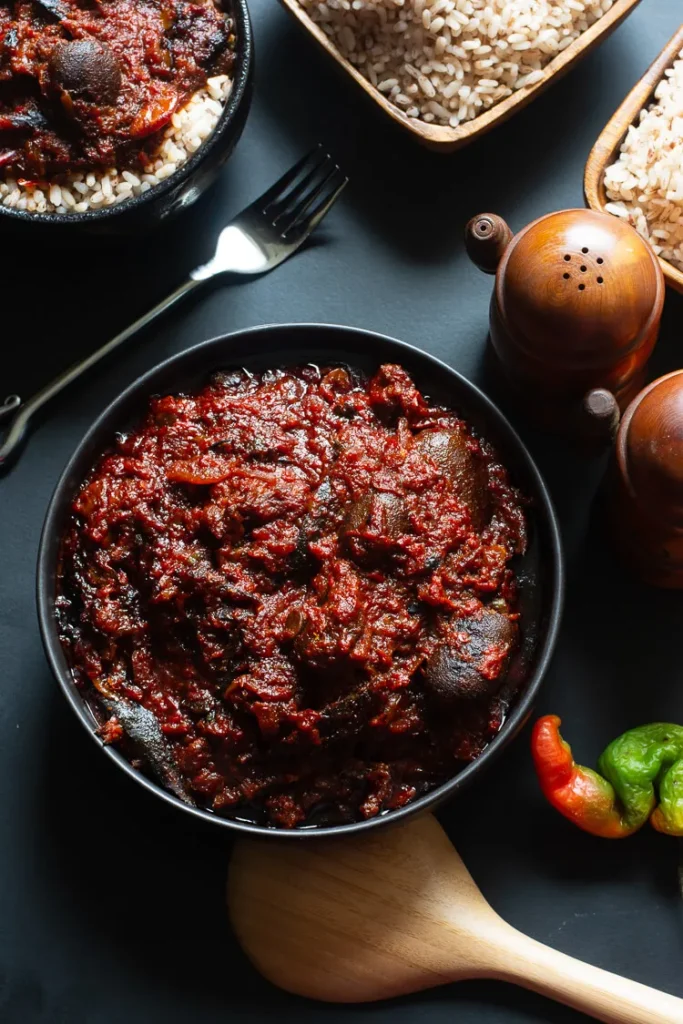
8. Ofada Rice
Ofada rice is a popular Nigerian dish known for its unique flavor and aroma. To prepare it, start by carefully picking through the rice to remove any stones or debris.
Rinse the rice thoroughly until the water runs clear. This step is crucial as ofada rice can be quite dirty.
Add the cleaned rice to a pot with water and cook on low to medium heat for about 40-50 minutes. Keep an eye on it to ensure it doesn’t overcook.
While the rice cooks, you can prepare ofada stew, a spicy sauce that often accompanies the dish. Blend peppers and onions, then fry in palm oil with meat and seasonings.
Serve the cooked ofada rice with the flavorful stew for a delicious Nigerian meal.
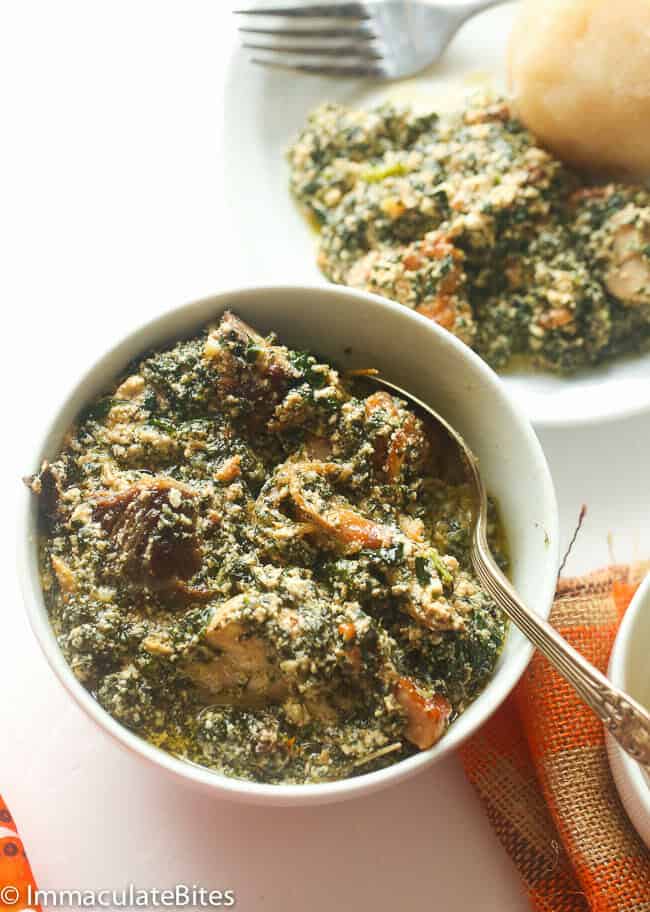
9. Bitterleaf Soup
Bitterleaf soup, also known as Ofe Onugbu, is a popular Nigerian dish. You’ll need beef, stockfish, crayfish, palm oil, and bitter leaves as key ingredients.
Start by washing and boiling the meat until tender. Add stockfish and dry fish, then cook until soft. Pour in palm oil and add ground crayfish, pepper, and seasoning cubes.
Prepare the bitter leaves by washing thoroughly to reduce bitterness. Add them to the pot and let simmer. For a thicker consistency, you can include cocoyam paste.
Allow the soup to cook for about 10-15 minutes, stirring occasionally. Taste and adjust seasoning as needed. Serve hot with your choice of swallow, such as fufu or pounded yam.
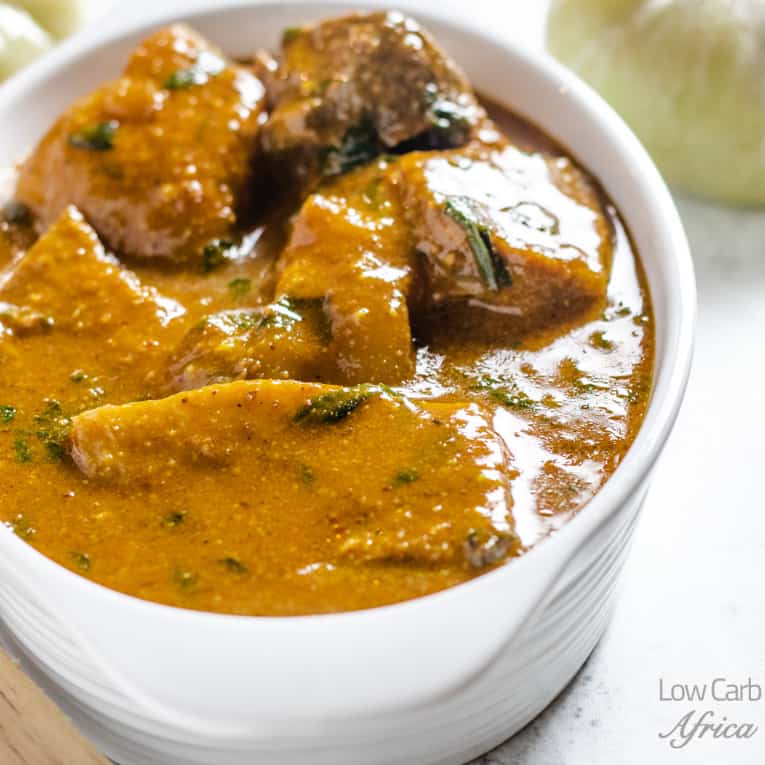
10. Ogbono Soup
Ogbono soup is a popular Nigerian dish made with ground ogbono seeds. To prepare it, you’ll need beef, stockfish, and spices.
Start by cooking the meat and stockfish until tender. Grind the ogbono seeds into a fine powder.
Mix the ground ogbono with hot water to form a paste. Add this paste to your pot of cooked meat and stir well.
Gradually add more water while stirring to avoid lumps. Let the soup simmer on low heat, stirring every few minutes.
Add crayfish, salt, and other seasonings to taste. The soup is ready when it reaches a slimy consistency.
Serve your ogbono soup hot with fufu, pounded yam, or garri for a delicious Nigerian meal.
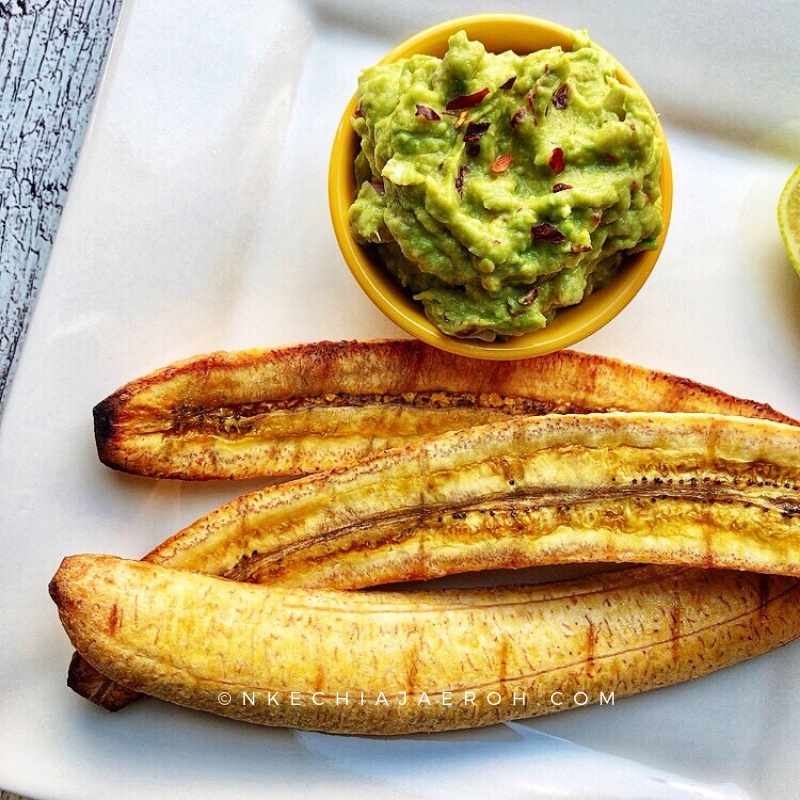
11. Boli
Boli is a popular Nigerian street food made from grilled or roasted plantains. You can prepare this tasty snack at home with ripe or unripe plantains, depending on your preference.
To make boli, start by washing and drying whole plantains. Grill them over an open flame or roast them in the oven until the skin turns black and the inside is soft.
Serve boli hot as a snack or side dish. It pairs well with roasted fish, especially mackerel. For a twist, try it with guacamole for a fusion of flavors.
Boli has a sweet, smoky taste that many find irresistible. It’s a quick and easy way to enjoy plantains with minimal preparation.
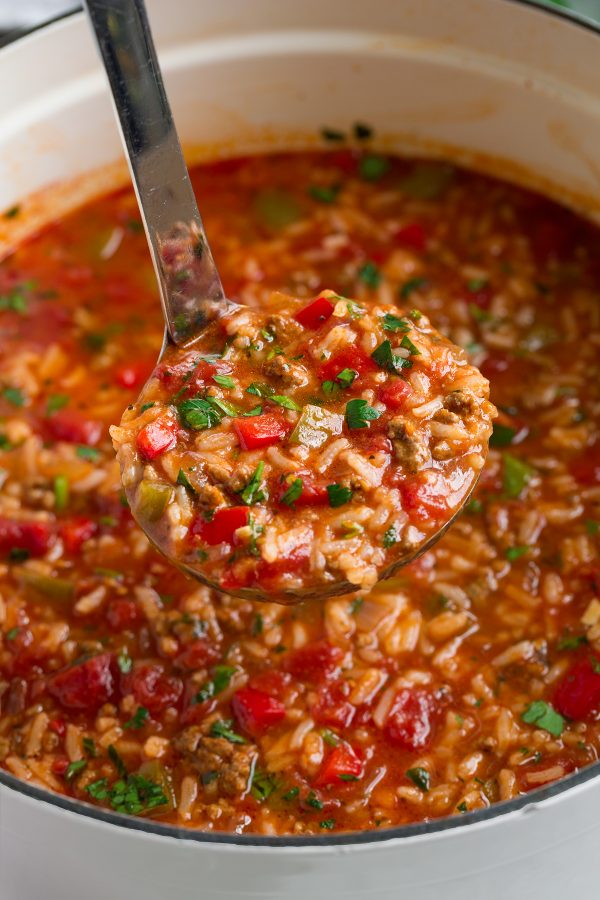
12. Pepper Soup
Pepper soup is a spicy Nigerian dish loved across the country. You can make it with different meats like goat, beef, chicken, or catfish. The soup gets its kick from a blend of spices and fresh lemongrass.
People enjoy pepper soup year-round, from rainy season to the dry harmattan months. You’ll find it served by street vendors, in bars, and at restaurants.
The name is a bit misleading – it’s not just about pepper. The rich broth combines various spices for a complex flavor. Many Nigerians believe the spices have health benefits too.
To make pepper soup, you’ll need meat, spices, and some vegetables. It’s a hearty and warming dish perfect for cold days or when you need a pick-me-up. Give it a try for a taste of authentic Nigerian cuisine.
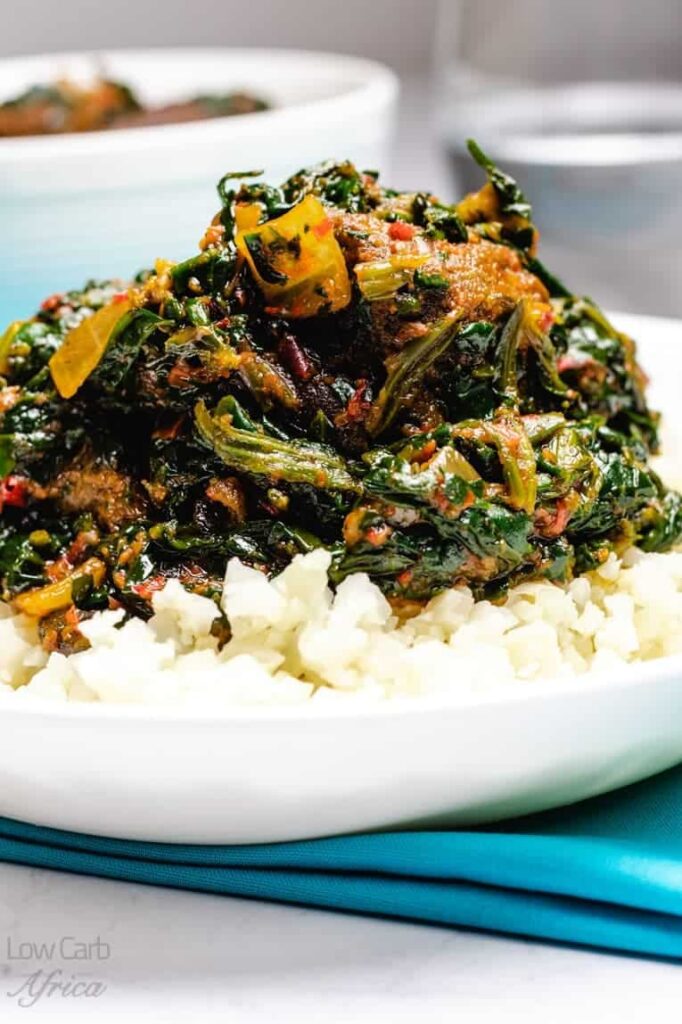
13. Efo Riro
Efo Riro is a popular Yoruba dish from Nigeria. It’s a flavorful stew made with leafy greens, typically spinach or amaranth leaves.
To make Efo Riro, you start by cooking meat or fish until tender. Then, you fry a blend of tomatoes, peppers, and onions in palm oil.
Next, you add locust beans, crayfish, and the cooked meat or fish to the stew. The leafy greens go in last, cooking just until wilted.
Efo Riro is often served with rice, yam, or cassava dishes. It’s a nutritious and tasty meal that you can enjoy any day of the week.
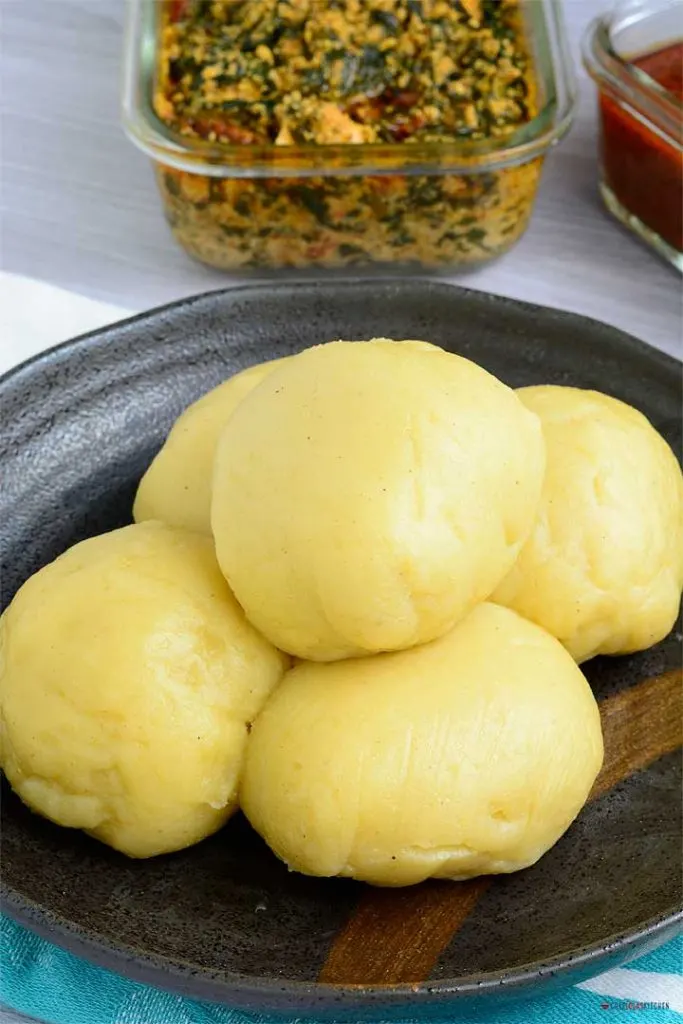
14. Fufu
Fufu is a staple food in Nigerian cuisine. It’s a dough-like dish made from starchy vegetables like cassava, yams, or plantains.
To make fufu, you boil the chosen ingredient until soft. Then, you pound or blend it into a smooth, elastic dough. The texture should be firm enough to shape into small balls.
Fufu is typically served with soups or stews. You eat it by pinching off a small piece, rolling it into a ball, and dipping it into the accompanying sauce.
While fufu itself is rather bland, it pairs well with flavorful soups like egusi or okra soup. This combination creates a satisfying and filling meal.
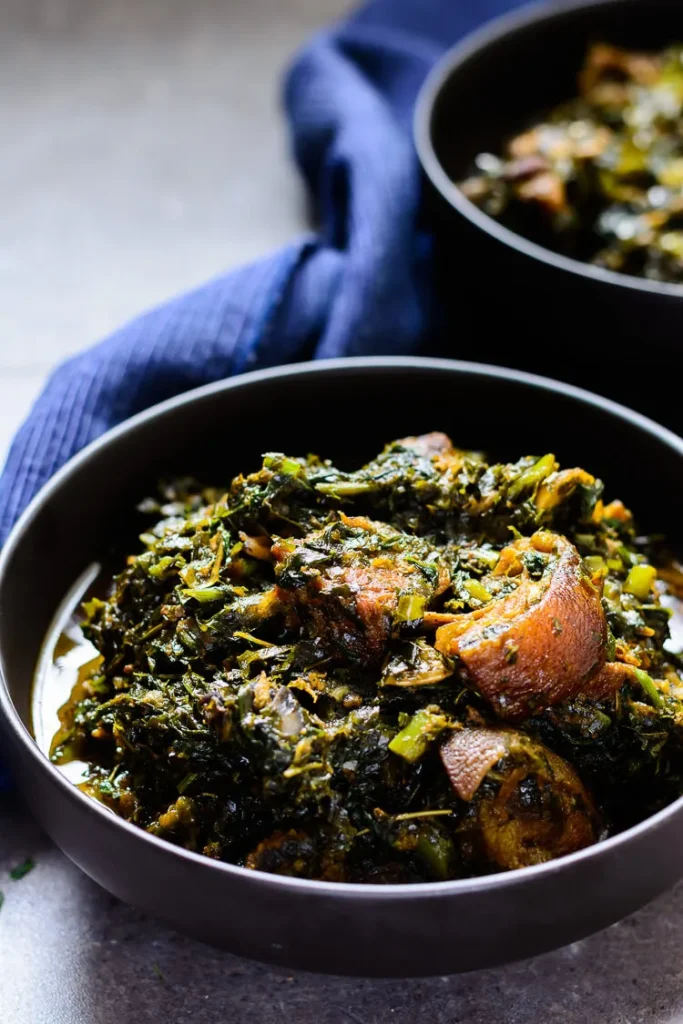
15. Afang Soup
Afang soup is a popular Nigerian dish from the Efik-Ibibio people. You’ll love this hearty soup packed with leafy greens and meat.
To make Afang soup, gather your ingredients: beef, dried fish, palm oil, crayfish, and spices. The key vegetables are sliced afang leaves and waterleaf.
Start by cooking the meat with onions and spices. Add the dried fish and palm oil. Mix in crayfish and pepper for extra flavor.
Next, add the afang and waterleaf. Let the vegetables soften as they simmer. The soup should be rich and well-seasoned.
Serve your Afang soup hot with fufu, eba, or pounded yam. It’s a tasty and nutritious meal you’ll enjoy making at home.

16. Yam Porridge
Yam porridge, also known as Asaro, is a tasty Nigerian dish. To make it, you’ll need yams, peppers, onions, and palm oil.
Peel and cut the yams into chunks. Blend red bell peppers, scotch bonnet chili, and onions.
Boil the yams with the pepper mix, salt, and seasonings. Add palm oil, sliced onions, and crayfish. Cook until the yams are soft.
Mash some of the yams to thicken the porridge. You can add leafy greens or fish for extra flavor and nutrition.
This hearty meal is easy to make and very filling. It’s perfect for a family dinner or when you want a comforting Nigerian dish.
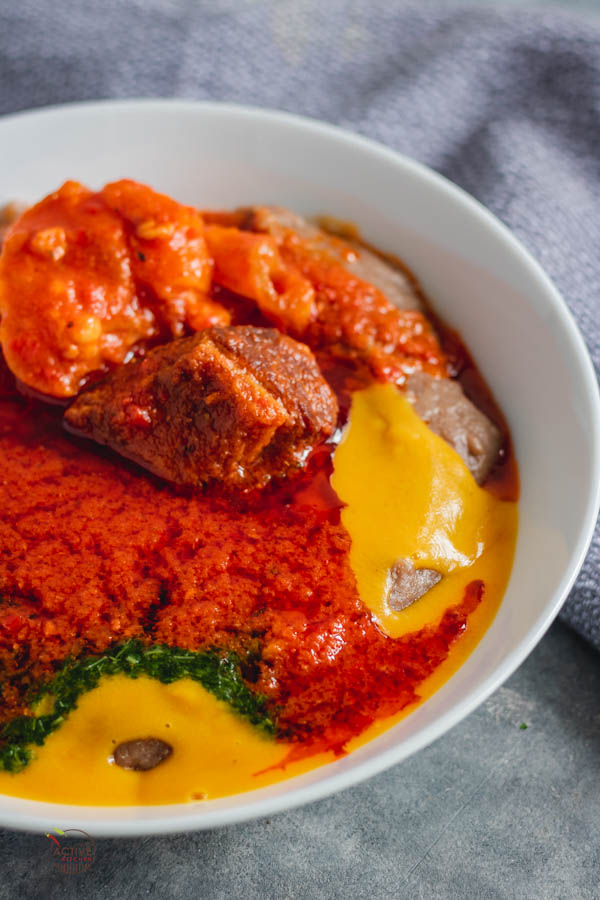
17. Gbegiri Soup
Gbegiri soup is a tasty West African dish made from black-eyed peas. To make it, you’ll need to soak and peel the beans first. This can be done by hand or with a blender.
Cook the peeled beans with onions and water until they’re very soft. This takes about an hour on the stovetop or 25 minutes in an instant pot.
Once cooked, blend the beans to create a smooth texture. Add some oil to a pan and sauté onions, garlic, and spices. Mix this into your bean puree.
You can add meat, crayfish, and seasonings to taste. Adjust the thickness with water if needed. Gbegiri is often served with ewedu soup and meat.
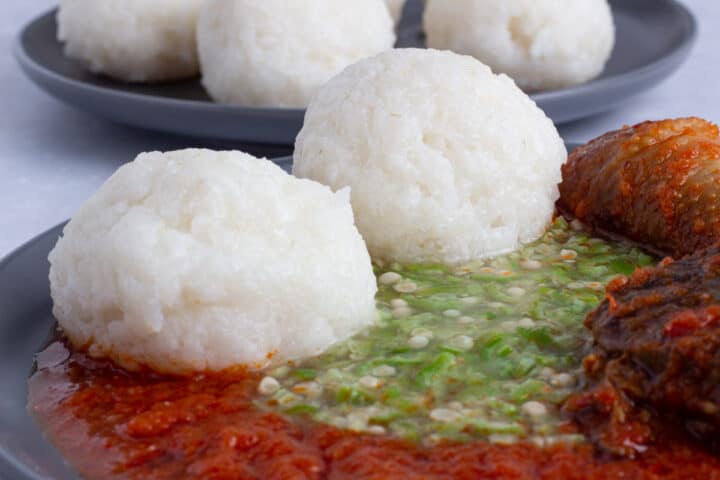
18. Tuwo Shinkafa
Tuwo shinkafa is a popular rice dish from Northern Nigeria. You make it by cooking soft rice until it becomes very tender. Then you mash and stir the rice to form a sticky dough-like texture.
To prepare tuwo shinkafa, use local Nigerian rice or sticky varieties like arborio. Cook the rice with enough water until soft. Mash and fold it against the pot sides to create a stiff, smooth mass.
You can shape the tuwo into balls or mounds for serving. Pair it with flavorful soups or stews. Wrap leftover portions in plastic to keep them moist.
This filling rice dish is a staple in many Nigerian homes. Its simple ingredients and hearty texture make it perfect for satisfying meals.
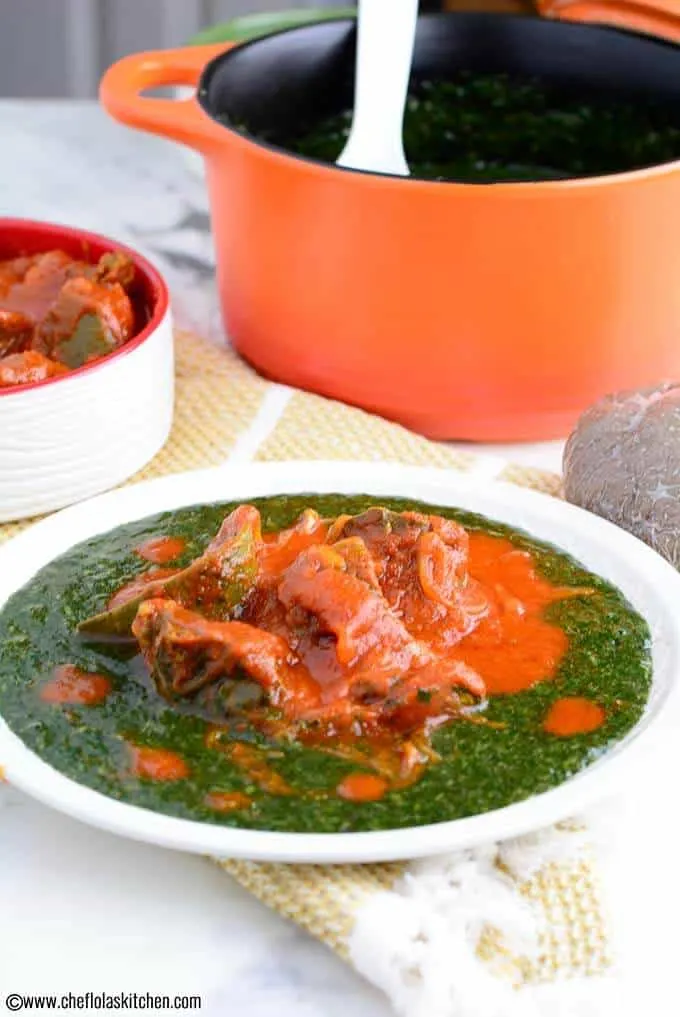
19. Ewedu Soup
Ewedu soup is a popular Nigerian dish made from jute leaves. You’ll find it often served with other Yoruba foods like pounded yam or amala.
To make ewedu soup, start by washing the jute leaves well. Boil them in water for about 10 minutes until tender.
Add crayfish, locust beans, and seasoning to enhance the flavor. Some cooks use a small broom called ijabe to blend the leaves until smooth.
You can add ground melon seeds (egusi) for extra thickness and nutrition. The soup cooks quickly, usually in under 15 minutes total.
Ewedu pairs nicely with gbegiri soup and various staple foods. Its green color and slimy texture make it unique among Nigerian soups.
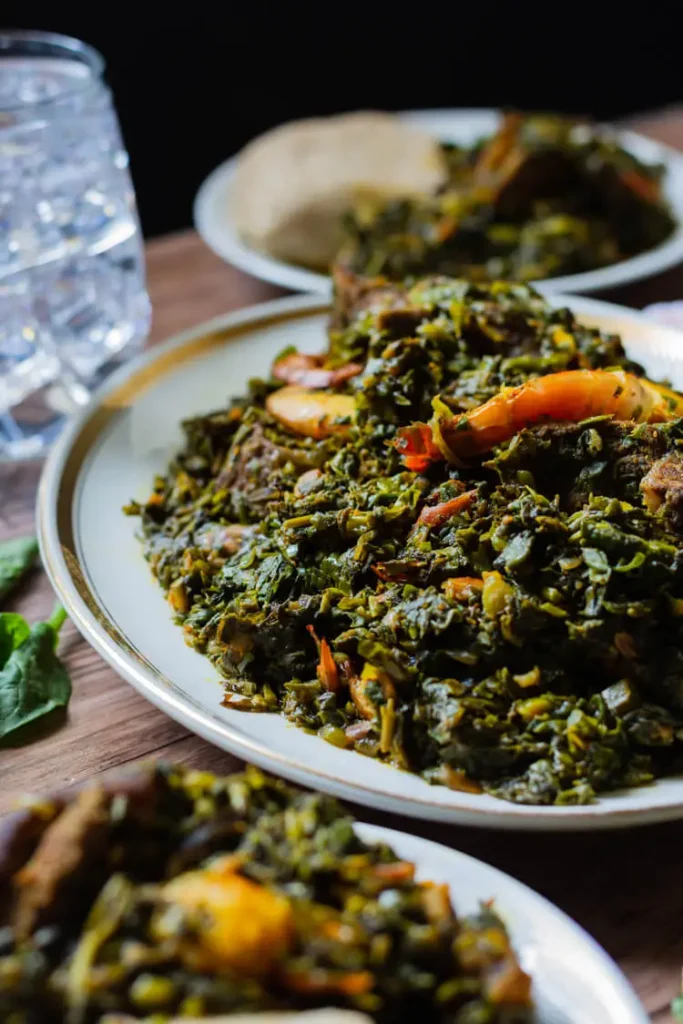
20. Edikang Ikong
Edikang Ikong is a nutritious soup from the Efik-Ibibio people of Nigeria. It’s packed with leafy greens and protein-rich ingredients.
To make this soup, you’ll need pumpkin leaves, water leaves, beef, dried fish, and palm oil. Cut the leaves into small pieces and drain them well.
Cook the meat with onions and spices. Add palm oil, crayfish, and pepper. Let it simmer for about 10 minutes.
Mix in the chopped leaves last. Cook for a short time to keep the greens fresh and vibrant. The result is a thick, flavorful soup that’s both healthy and satisfying.
Serve Edikang Ikong with fufu or pounded yam for a true Nigerian feast.
Historical Background of Nigerian Cuisine
Nigerian cuisine has a rich history shaped by diverse cultures and influences over centuries. It blends traditional ingredients with cooking methods that evolved through different periods.
Influence of Traditional Ingredients
Yams, cassava, and palm oil have been staples of Nigerian cooking for generations. These ingredients form the base of many classic dishes. Spices like ginger, garlic, and chili peppers add flavor and heat.
Local fruits and vegetables play a key role too. Plantains, okra, and leafy greens feature in numerous recipes. Meat and fish are often used, but many dishes are plant-based.
Traditional cooking methods include roasting, frying, and steaming. Soups and stews are common, often served with pounded yam or rice.
Evolution Through Colonial Periods
The arrival of Europeans in the 15th century brought new ingredients to Nigerian cuisine. Tomatoes, maize, and pineapples were introduced during this time.
Portuguese traders brought chilies and other spices from their travels. These additions enhanced the flavors of local dishes. British colonial rule later influenced cooking styles and ingredients.
Rice became more widely used during this period. New cooking techniques like baking were adopted. Some European dishes were adapted using local ingredients.
After independence, Nigerian cuisine continued to evolve. It now blends traditional recipes with modern twists and global influences.
Health Benefits of Nigerian Food
Nigerian cuisine offers many nutritious options that can support overall health and wellbeing. The traditional dishes often feature nutrient-dense ingredients and may positively impact metabolism and immune function.
Nutrient-Dense Ingredients
Nigerian foods contain many wholesome ingredients packed with essential nutrients. Beans provide protein and fiber to keep you feeling full. Leafy greens like spinach offer iron and vitamins. Tomatoes in jollof rice supply antioxidants.
Unripe plantains have resistant starch that aids digestion. Nuts add healthy fats and protein. Okra in soups gives you vitamins and minerals. Goat meat is lean and high in protein.
These nutrient-rich foods can help you meet your daily needs. Eating a variety of Nigerian dishes ensures you get different vitamins and minerals. This supports your overall health and nutrition.
Impact on Metabolism and Immunity
Some Nigerian foods may boost your metabolism and immune system. Pepper soup with spices can increase metabolic rate. The capsaicin in hot peppers may help burn fat.
Beans and other high-fiber foods support gut health. A healthy gut is linked to better immunity. Fermented foods like ogi contain probiotics that aid digestion.
Fish dishes provide omega-3 fatty acids that fight inflammation. Fruits and vegetables supply antioxidants to protect cells. Garlic and ginger in stews have immune-boosting properties.
Eating these foods as part of a balanced diet can help your body function well. They may improve your energy levels and ability to fight off illness.
